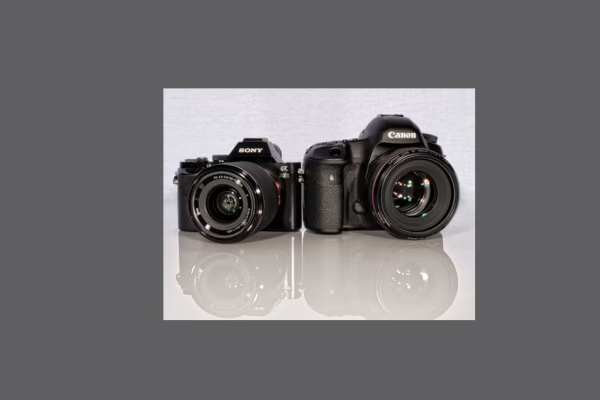Stepping into the world of photography is exciting—but choosing your first camera and lens can feel like standing at a crossroads without a map. With endless specs, models, and price tags screaming for your attention, it’s easy to feel lost. But don’t worry. Choosing your first camera and lens isn’t about getting the best—it’s about finding what fits you.
Start with Your Purpose
Think about why you want to take photos. Are you drawn to dramatic landscapes? Do you love capturing raw, candid street moments? Or maybe you want to take sharp portraits of your friends and family. Your goal defines your gear. For instance, landscape lovers need wide angles, while portrait photographers benefit from lenses with creamy background blur (a.k.a. bokeh).
DSLR or Mirrorless?
There are two main players in beginner photography: DSLRs and mirrorless cameras. DSLRs like the Canon Rebel or Nikon D5600 offer solid performance, traditional feel, and long battery life. But if you want something lighter and more modern, mirrorless cameras are winning hearts—think Sony a6400, Canon EOS R50, or Fujifilm X-T30. These offer fast autofocus, electronic viewfinders, and are perfect for travel or vlogging too.
For most beginners, mirrorless is the smarter choice—it’s compact, user-friendly, and future-proof.
Understanding Sensor Size
The sensor is the heart of your camera. A larger sensor means better image quality, especially in low light. Most beginners start with APS-C sensors, found in mid-range DSLRs and mirrorless models. These strike the perfect balance between affordability and image quality. Full-frame sensors are pro-level (and pricier), while micro four-thirds are compact but slightly less powerful.
Let’s Talk Lenses
Now, the lens. This is where the magic happens. While camera bodies become outdated, lenses are long-term investments.
If you’re on a budget, the 18–55mm kit lens is a decent starting point—it covers wide to moderate zoom. But if you want to level up your photos, a prime lens like the 50mm f/1.8 is a game changer. It’s sharp, great in low light, and gives beautiful depth. Want wider shots for travel or interiors? Try a 24mm or 35mm lens. For portraits? A 85mm f/1.8 will blow you away.
Make It Yours
Hold different cameras, test them out, read reviews—but most importantly, trust your gut. Choose gear that feels right in your hands and inspires you to get out and shoot.
Because at the end of the day, the best camera is the one that makes you fall in love with photography.

